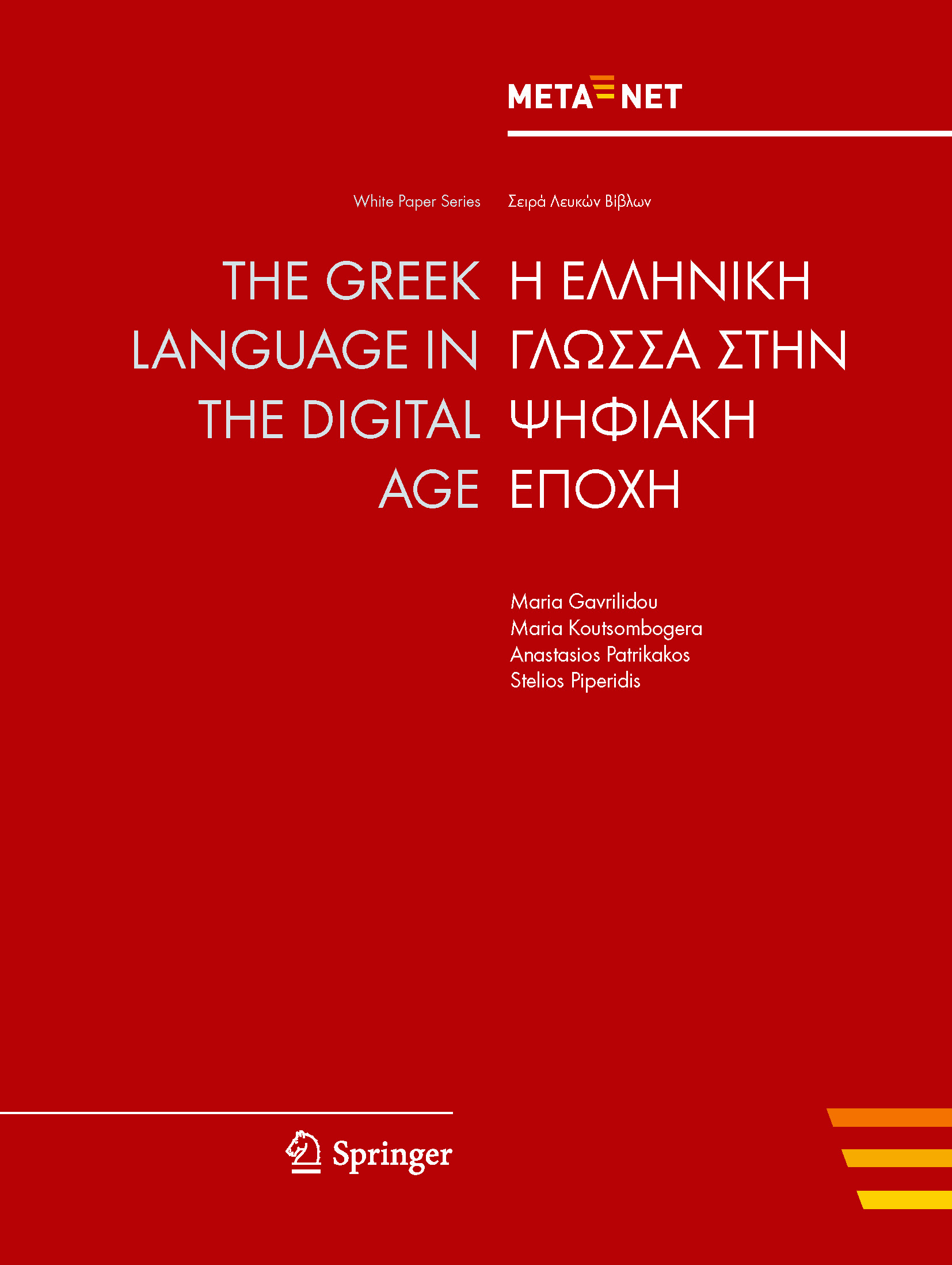The Languages of Greece
Greek is the official language of Greece, one of the two official languages of Cyprus and, since 1981, one of the official languages of the European Union. It is spoken as mother tongue by approximately 95% of the 10.5 million inhabitants of Greece and by approximately 500,000 Greek Cypriots. Around the world, it is spoken by around 13.4 million native speakers (people of Greek origin, members of Greek communities) mainly in the USA, Australia, Canada, Europe, Albania, the former Soviet Union countries, Turkey, and Egypt. Greek is an Indo-European language, the only surviving member of the Hellenic branch of the Indo-European language family. It has the longest documented history of any Indo-European language, spanning 34 centuries of written records. The currently existing dialects are considered as elements of cultural identity being used exclusively among members of the specific communities; the modern way of living, urbanism, the use of the standard variety in education, and mass media has led to the prevalence of standard Modern Greek over the various dialects.
Features of Greek:
- The Greek writing system has been the Greek alphabet for the majority of its history.
- The rich inflectional system poses specific difficulties to LT systems, lemmatization, for example, faces the notorious problem of recognition of certain inflectional types that can belong to a verb or to its deverbal noun. On the other hand, the case system renders syntactic relations between sentence elements explicit.
- Greek is very productive when it comes to derivational morphology.
- Greek is a pro-drop language: personal pronouns are omitted when they are morphologically or pragmatically inferable.
- It presents a free word order, the neutral word order being Verb-Subject-Object or Subject-Verb-Object.
NCC Lead Greece
Maria Gavrilidou is a Senior Researcher at the Institute for Language and Speech Processing – ILSP/ RC Athena. As a Researcher in the field of computational linguistics since 1988, she has been coordinating ILSP’s work in several EU and national projects on corpora and lexica, specializing in the design, development, and processing of language resources (LRs), and in the design and use of metadata for LRs description, the design and creation of lexical and terminological resources. She has participated in many European and national projects on LRs, and related infrastructures. She has coordinated the design of the META-SHARE metadata model for the descriptions of LRs and is Deputy Director of the CLARIN: EL infrastructure. She has taught computational lexicography in postgraduate courses. She authored publications in Greek and for international conferences, journals and books, in the areas of computational lexicography, terminology and language resources creation and processing.

Current National Initiatives
- There is no LT-specific program, but funding for LT, AI, or language-related projects can be obtained through various programs.
- LT and LRs are supported by the national project CLARIN: EL in the framework of the APOLLONIS infrastructure, with a total funding of 4 million EUR until 2020.
- Challenges consist in supporting the development of Language Technology for Greek and ensuring digital readiness of the language.
Wikipedia contributors. (2020, April 16). Greek language. In Wikipedia, The Free Encyclopedia. Retrieved 14:00, April 17, 2020, from https://en.wikipedia.org/wiki/Greek_language.
2020 World Population by Country. Greece Population 2020 (Live). In World Population Review. Retrieved 10:00, April 24, 2020, from https://worldpopulationreview.com/countries/greece-population/.
Events
META-NET White Paper on Greece
Maria Gavrilidou, Maria Koutsombogera, Anastasios Patrikakos, and Stelios Piperidis. Η Ελληνικη Γλωσσα στην Ψηφιακη Εποχη - The Greek Language in the Digital Age.META-NET White Paper Series: Europe's Languages in the Digital Age. Springer, Heidelberg, New York, Dordrecht, London, 9 2012. Georg Rehm and Hans Uszkoreit (series editors).
Full text of this META-NET White Paper (PDF)
Additional information on this META-NET White Paper
Availability of Tools and Resources for Greek (as of 2012)
The following table illustrates the support of the Greek language through speech technologies, machine translation, text analytics and language resources.
| Speech technologies | Excellent
support |
Good
support |
Moderate
support |
Fragmentary
support |
Weak/no
support |
|---|---|---|---|---|---|
| Machine translation | Excellent
support |
Good
support |
Moderate
support |
Fragmentary
support |
Weak/no
support |
| Text analytics | Excellent
support |
Good
support |
Moderate
support |
Fragmentary
support |
Weak/no
support |
| Language resources | Excellent
support |
Good
support |
Moderate
support |
Fragmentary
support |
Weak/no
support |
